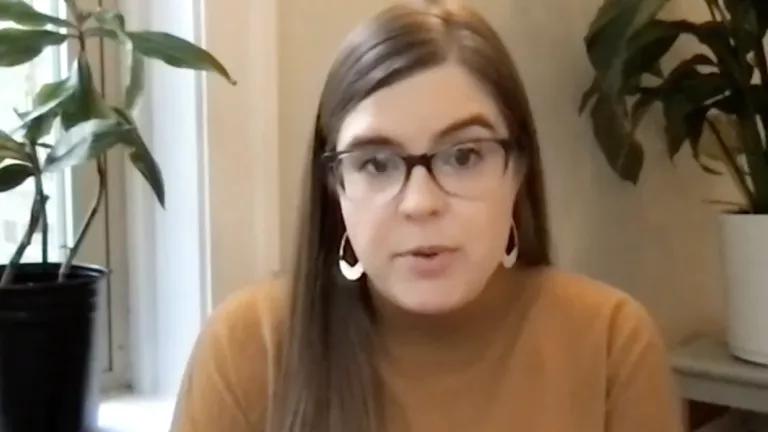A New Customer Bill of Rights: Affordable Utility Services
The vital need for uninterrupted utility service was evident before the coronavirus pandemic, but the COVID-19 public health emergency has reinforced the essential nature of utility service and the threats of energy and water poverty.

Photo by Sharon McCutcheon on Unsplash
Co-authored with Karen Lusson of the National Consumer Law Center
Utility services—electricity, heat, water, sanitation, telecommunications, and internet access—are essential to health, safety, and daily life. The vital need for uninterrupted utility service was evident before the coronavirus pandemic, but the COVID-19 public health emergency has reinforced the essential nature of utility service and the threats of energy and water poverty. This is why the National Consumer Law Center (NCLC), the Natural Resources Defense Council (NRDC), and our allies and partners have developed a fundamental set of customer bill of rights principles, and guidance for their implementation.
Every struggling family in America knows that falling behind on utility bills comes with the risk of service disconnections.
Washington Post reporter Greg Jaffe wrote an excellent article about the consequences, digging into the data about customers who are behind on their utility bills and facing disconnection and highlighting the stories of people whose income falls far short of covering ever-growing utility bills. He cites this new paper by Tufts University Assistant Professor Steve Cicala that describes the struggles among communities served by Illinois’ two largest electric utilities:
Each month from September-December 2020, about 20% of all accounts were charged non-payment fees, and disconnection notices were served to 3.4% and 2.5% of residential and commercial/industrial accounts, respectively. For each of these outcomes there is a strong disproportionate burden on minority communities.
Nearly 1% of these utilities’ residential accounts (and 72,000 families across Illinois) had their power shut off for nonpayment during just that four-month period. And the pain is not shared evenly across the state. For example, in one Peoria zip code, 300 homes, or 5.4% of all homes, were disconnected. The most jarring example Jaffe lifts up is a 38-year-old woman living in that Peoria zip code, who earns $300 a week washing dishes at a diner, lost electric and gas service last fall for four or five days because of unpaid bills, and now again faces an eye-popping $4,242.44 in overdue utility bills.
Many states and utilities created temporary solutions to help struggling households during the early days of the crisis. One year later, many of these COVID-19 utility protections have lapsed. Yet, the underlying problem remains—essential utility service is unaffordable for too many.
Instead of ensuring that the most vulnerable in our society have access to essential utility services—during a pandemic or otherwise—many states allow utilities to disconnect even the most economically or medically vulnerable households when they cannot afford their monthly bills. Late fees, deposits, liens, and other punitive charges compound the problem by increasing the amount that struggling households must pay to access, maintain, or restore service.
Available data indicate that utility service disconnections disproportionately harm people of color and older people. Reliance on shutoffs as a collections tool has the effect of punishing people for being poor and ignores the longstanding racial and economic discrimination that has created the disparities that fuel poverty and the unaffordability of utility services.
We Need Post-2020 Policies to Protect People
Policymakers must develop alternatives to this punitive approach to utility debt collections, which leads each year to millions of shutoffs nationwide, leaving physically and economically vulnerable populations without water, heat, and light.
These utility shutoffs are a threat to the health and safety—both for people experiencing disconnections and for the community as a whole. The lives of medically vulnerable people, including people with asthma, infants, children, and the elderly, are particularly at risk without access to electricity. Lack of access to water for cooking and basic hygiene increases hunger and the spread of infectious disease. The threat of shutoffs can force people to choose between paying a utility bill and affording rent, food, medicine, and other life essentials. This is why policymakers, utilities, and consumer advocates in all states have an obligation to take action to ensure that utility service is affordable for all. In addition, everyone—particularly those with extremely limited incomes—should have access to free programs that can help them reduce their utility bills by saving energy and water.
Utility Consumer’s Bill of Rights
The NCLC, NRDC, and other consumer advocates and community-based organizations from a variety of states have developed a utility consumer’s bill of rights entitled a Roadmap to Utility Service as a Human Right that presents bedrock principles of universal, affordable utility service. It describes a set of responsibilities and action items for those who regulate and deliver utility service. Specifically, we describe clear obligations of state and federal policymakers, public utility commissions, investor owned and publicly owned utilities, and advocates—offering a set of regulatory and public policy changes needed to protect universal access to essential utility services.
Consumer advocates and community-based organizations can use—and adapt to their own circumstances—the bill of rights and its accompanying implementation guide to promote federal, state and local policies that protect affordable access to water, power, and broadband. Guided by these principles and policy solutions, utilities and policymakers alike should rethink and revise punitive credit and collection policies and adopt pro-active solutions that ensure essential utility services are affordable to all.
The time is right for significant, permanent policy changes to address the unaffordability of utility services, and to end the punitive approach to utility revenue collection that threatens health and safety, and ultimately punishes people for being poor.




